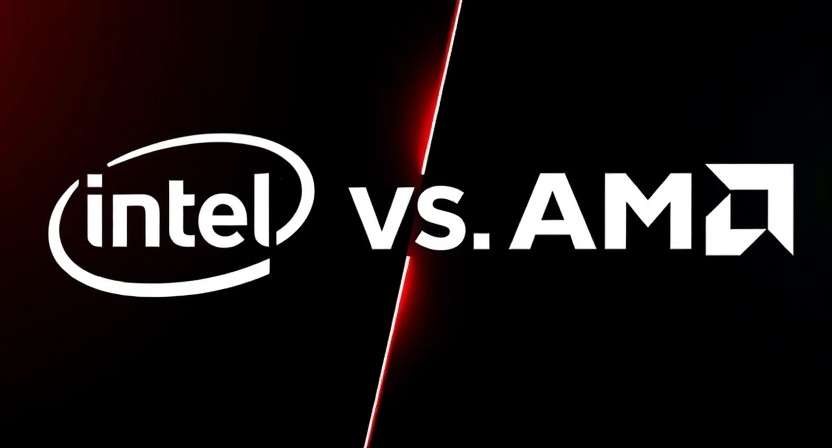AMD vs Intel in 2025: The Ultimate CPU Showdown
When it comes to choosing a processor, the battle of AMD vs Intel remains the tech world’s fiercest rivalry. In 2025, this competition is hotter than ever, with AMD’s Ryzen lineup pushing boundaries and Intel fighting back with its hybrid architecture. Whether you’re a gamer, a creator, or just building a budget PC, this guide breaks down the latest performance, value, and future-proofing of AMD vs Intel CPUs. Let’s dive into the showdown and find out which chip reigns supreme today—and tomorrow.
AMD vs Intel: A Quick History of the Rivalry
The AMD vs Intel saga dates back decades, but the last few years have been a rollercoaster. Intel dominated the CPU market until AMD’s Ryzen revolution in 2017 flipped the script with multi-core power at affordable prices. By 2025, AMD’s Zen 4 (Ryzen 7000 series) and Intel’s 14th Gen Raptor Lake Refresh are the current champs, with whispers of Zen 5 and Arrow Lake looming. This constant innovation keeps us asking: who’s ahead right now?
Performance Face-Off: AMD vs Intel in 2025
Gaming Performance
For gamers, AMD vs Intel is a neck-and-neck race. AMD’s Ryzen 7 7800X3D, with its 3D V-Cache tech, remains the king of gaming CPUs in early 2025, delivering insane frame rates in titles like Cyberpunk 2077 and Starfield. Benchmarks show it edging out Intel’s Core i7-14700K by 5-10% in 1440p gaming, thanks to its massive L3 cache.
Intel counters with the Core i9-14900K, a beast for high-refresh-rate 4K gaming, especially when paired with DDR5-7200 RAM. Its hybrid P-core/E-core design shines in multitasking, but single-threaded performance still trails AMD’s latest by a hair. Winner: AMD for pure gaming, Intel for versatility.
Productivity and Creative Workloads
In the AMD vs Intel productivity arena, AMD’s Ryzen 9 7950X3D dominates multi-threaded tasks like video rendering and 3D modeling, outpacing Intel’s i9-14900K by 15-20% in Cinebench R24. However, Intel’s higher clock speeds (up to 6.0 GHz) give it an edge in single-threaded apps like Adobe Photoshop.
Looking ahead, rumors suggest AMD’s Zen 5 (expected late 2025) will boost IPC by 20%, while Intel’s Arrow Lake (also slated for late 2025) may introduce a new tile-based architecture. For now, Winner: AMD for heavy workloads, Intel for lighter tasks.
AI and Future Tech
AI is the next frontier for AMD vs Intel. AMD’s XDNA AI engine in Ryzen 7040 series chips powers on-device machine learning, ideal for creators using AI tools like Stable Diffusion. Intel’s Meteor Lake (14th Gen mobile) introduced AI accelerators in 2024, and Arrow Lake promises even more. If you’re betting on AI-driven PCs, both brands are neck-and-neck. Winner: Tie—wait for late 2025 releases.
Price-to-Performance: Where’s the Value?
In the AMD vs Intel value debate, AMD typically wins. The Ryzen 5 7600 ($229) outperforms Intel’s Core i5-14400F ($209) in gaming and multi-threading, making it a budget champ. At the high end, the Ryzen 9 7950X3D ($699) undercuts Intel’s i9-14900K ($589) while delivering superior efficiency.
Intel’s chips often require pricier Z790 motherboards and run hotter, bumping up cooling costs. AMD’s AM5 platform, while not cheap, supports DDR5 and PCIe 5.0 with better longevity (promised through 2027). Winner: AMD for cost-effectiveness.
Power Efficiency and Thermals
Efficiency matters in 2025’s eco-conscious world. AMD’s Zen 4 chips, built on TSMC’s 5nm process, sip power— the 7800X3D peaks at 90W under load. Intel’s 14th Gen, on its 10nm (Intel 7) node, guzzles up to 250W with the i9-14900K, demanding beefy coolers. Zen 5 rumors hint at a 4nm leap, while Arrow Lake may finally shrink Intel’s process. Winner: AMD, hands down.
Future-Proofing: AMD vs Intel Platforms
AMD’s AM5 socket, launched in 2022, is future-proofed with support pledged through at least 2027. Intel’s LGA 1700 socket, used since Alder Lake (12th Gen), may retire with Arrow Lake’s rumored LGA 1851 shift in late 2025. If you hate swapping motherboards, AMD’s longevity wins. Winner: AMD.
Comparison Table: AMD vs Intel Top Picks
| CPU | Cores/Threads | Boost Clock | TDP | Price | Best For |
|---|---|---|---|---|---|
| Ryzen 7 7800X3D | 8/16 | 5.0 GHz | 120W | $449 | Gaming |
| Core i7-14700K | 20 (8P+12E)/28 | 5.6 GHz | 253W | $409 | Multitasking |
| Ryzen 9 7950X3D | 16/32 | 5.7 GHz | 170W | $699 | Content Creation |
| Core i9-14900K | 24 (8P+16E)/32 | 6.0 GHz | 253W | $589 | High-End Everything |
The Verdict: Who Wins AMD vs Intel in 2025?
- Gamers: Go AMD with the Ryzen 7 7800X3D—unmatched FPS for the price.
- Creators: Pick AMD’s Ryzen 9 7950X3D for multi-core dominance or Intel’s i9-14900K for single-threaded speed.
- Budget Builders: AMD’s Ryzen 5 7600 offers the best bang for your buck.
- Future-Proofers: AMD’s AM5 platform is the safer long-term bet.
The AMD vs Intel war isn’t over—it’s evolving. With Zen 5 and Arrow Lake on the horizon, 2025’s second half could shift the tides. For now, AMD holds the edge in gaming, efficiency, and value, while Intel flexes its muscle in raw clock speed and hybrid versatility.
What’s Next for AMD vs Intel?
AMD’s Zen 5 may debut by Q4 2025, promising a 20-25% IPC boost and tighter AI integration. Intel’s Arrow Lake could counter with a new process node and enhanced AI cores, potentially closing the efficiency gap. Stay tuned—our next AMD vs Intel update will dive into these releases as they drop.
Which side are you on—Team Red (AMD) or Team Blue (Intel)? Drop your thoughts below and join the debate!
